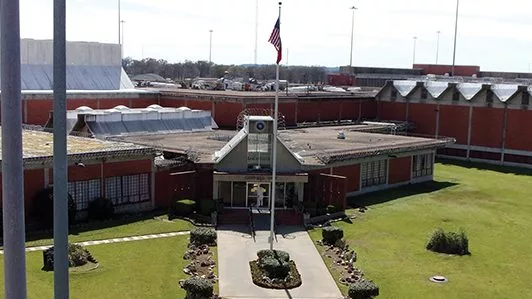
The Texas Civil Rights Project (TCRP) recently released a report, “Solitary Confinement in Texas: A Crisis with No End,”1 in which the nonprofit calls for the U.S. Department of Justice (DOJ) to open an investigation into solitary confinement practices in Texas.
An investigation is called for, the report reads, due to alleged violations of the federal Civil Rights of Institutionalized Persons Act.
The report was a joint collaboration by TCRP, the Civil Rights Clinic at The University of Texas School of Law, the Behind Bars Data Project at the University of California Los Angeles School of Law, and the Texas Justice Initiative.
The report focuses on two prisons: H.H. Coffield Unit and Mark W. Michael Unit, both in Tennessee Colony, Tex.
It is at these units that “the injustices of solitary confinement are particularly egregious,” the report reads.
During the winter and spring of 2023, researchers from TCRP and the UT Civil Rights Clinic conducted interviews, reviewed Texas Department of Criminal Justice (TDCJ) data, and visited the prisons to interview inmates.
Based on these sources, the report identified seven primary issues:
1. Solitary Confinement Is Detrimental to Mental Health
Individuals interviewed for the report had spent anywhere between several months to decades in solitary confinement, with one individual spending 33 years, the report reads.
These individuals reported numerous instances of anger, boredom, stress, loss of sense of reality, suicidal ideation, trouble sleeping, lethargy, impaired concentration, confusion, memory loss, paranoia, panic attacks, hallucinations, delirium, and depression while in solitary confinement.
Individuals in solitary confinement do not have easy access to mental healthcare, the report says.
Per TDCJ policy, staff are required to conduct at least weekly “mental health checks” for individuals in solitary confinement.
“But these checks amount to little more than a cursory, ‘How are you?’ or ‘Are you okay?’” the report states.
Even if the inmate responds no, they are not okay, the staff member moves on, the report says.
Between 2020 and 2022, there was an average of 52 suicides per year in TDCJ facilities, according to data analyses by Texas Justice Initiative,2 which is 86 percent greater than the average in U.S. prisons, according to 2019 data released by the DOJ.3
2. Texas Prisons Are Consistently Understaffed
Maximum-security TDCJ facilities had an overall average incarcerated-people-to-correctional-officer
(IP-CO) ratio of 6.7 to one in September 2021, with 10 of these facilities having a ratio of nine to one.
Some inmates reported going as long as 15 hours without seeing an officer, the report reads, and in the Michael and Coffield Units, it was common for a single officer to be assigned to three wings—approximately 180 inmates.
